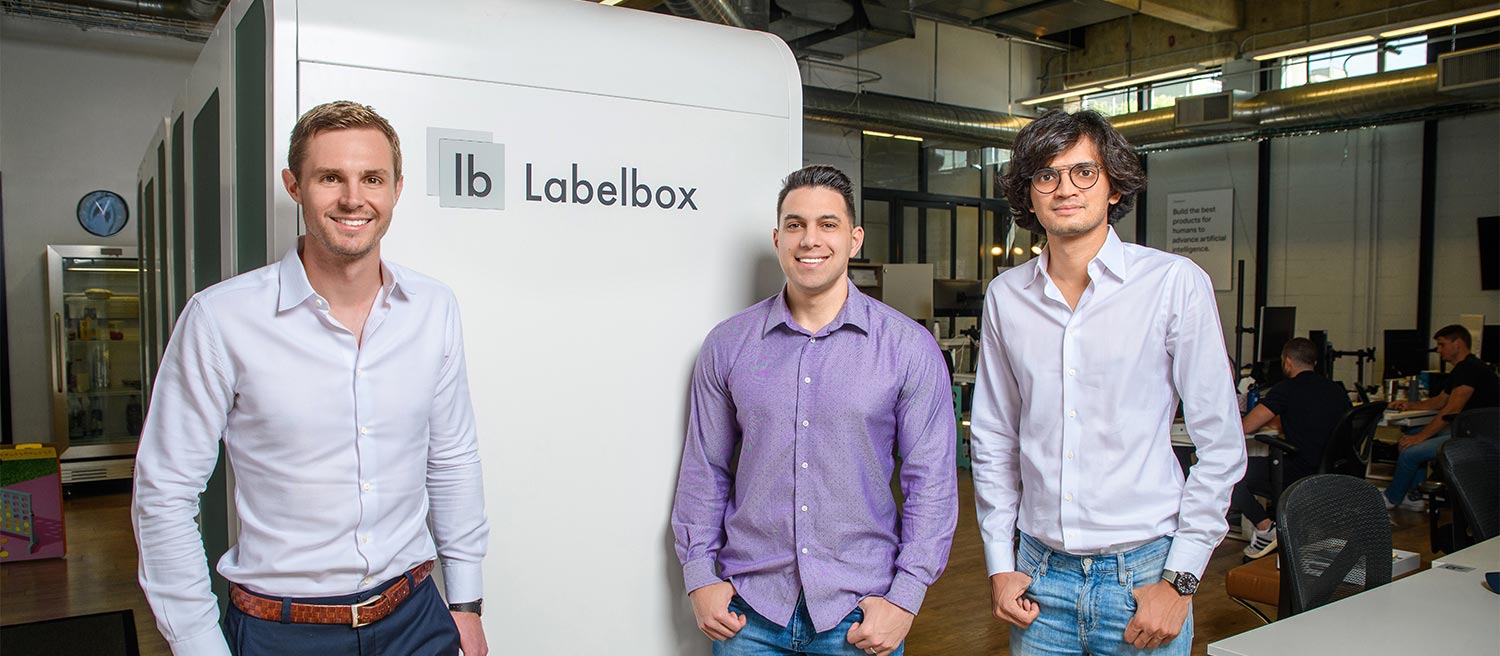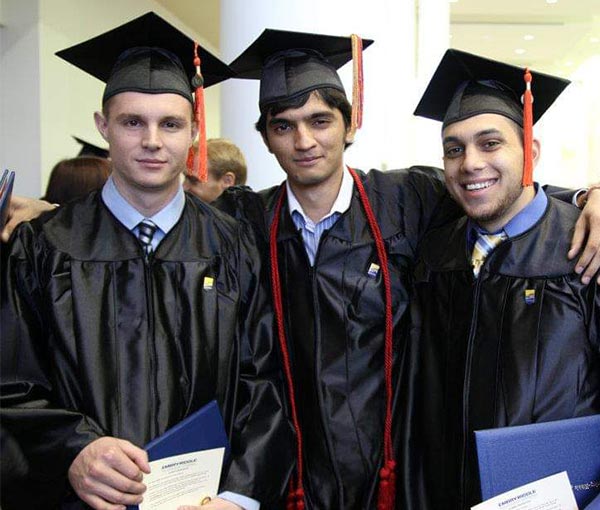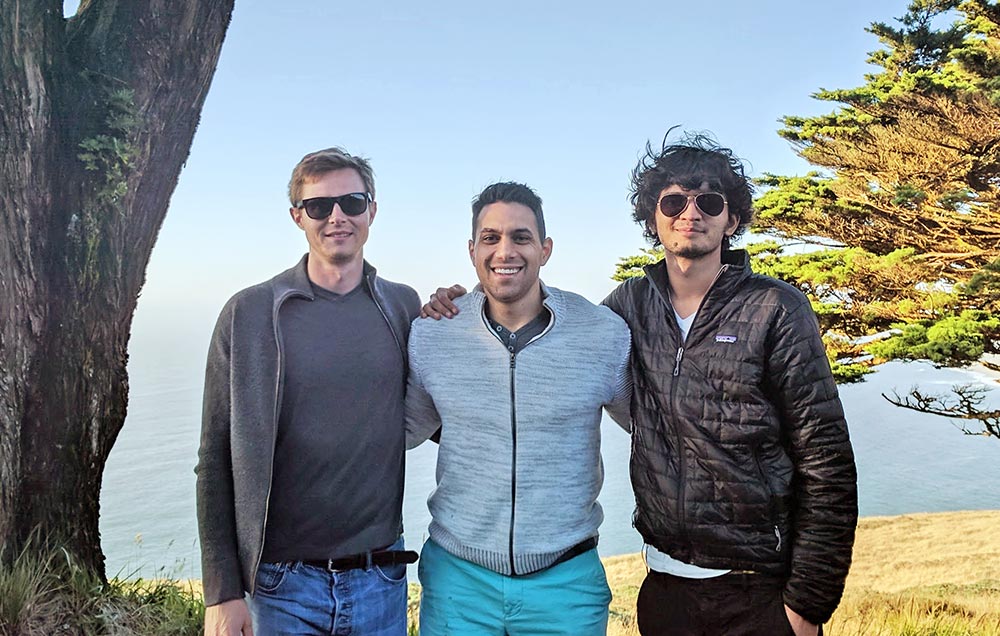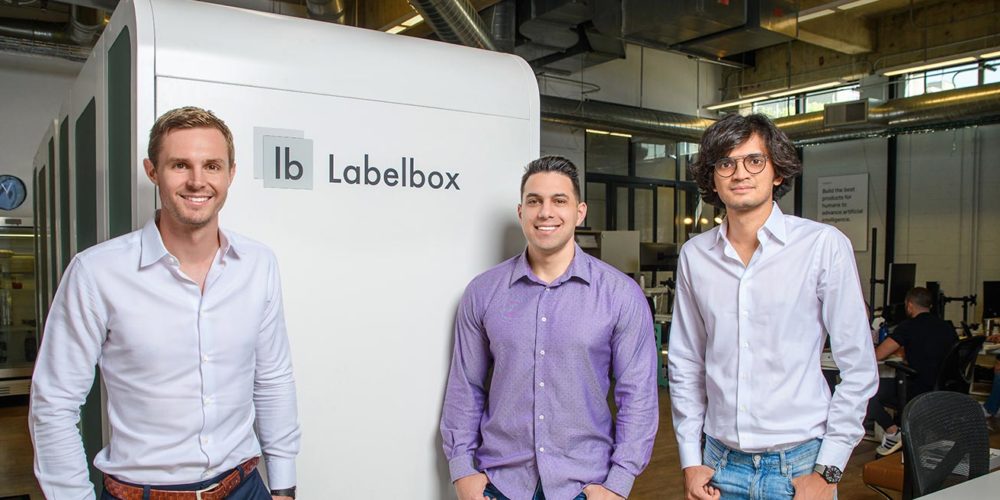Manu Sharma (’11), Brian Rieger (’11) and Cyrus Jou (’11) met during their senior year capstone course at Embry-Riddle in Professor Snorri Gudmundsson’s aircraft design class. “We were on three different teams, and we were all competing with each other on designing the best airplane,” Sharma explains. “We were all very, very competitive and very excited to explore the boundaries of what was possible with the limited knowledge that we had.”
They’ve continued to explore the boundaries of possibility, well beyond their days at Embry-Riddle, by partnering in several innovative ventures.
Their latest innovation, ironically enough, has them thinking “inside the box.” Together they have developed a tool that uses machine learning to help data scientists find meaningful patterns in very large amounts of visual information.
A Tool for Tomorrow
The tool, and the company they’ve formed, is called Labelbox. A web-based platform, Labelbox allows users to identify and label items portrayed in an image, so that these items can be parsed, via a proprietary machine learning algorithm, to extract meaningful insights. The platform also allows users to coordinate the activities of individual labelers, whether it’s a handful or thousands.

“This hasn’t been done before,” Rieger adds. “We haven’t been able to code software algorithms and use logic directly to understand the complexity of the visual world and written world, but machine learning and AI can do that, and that’s one of its hallmarks.”
Seeds of Success
The idea that ultimately gave birth to Labelbox started forming in Manu Sharma’s mind when he worked for Planet Labs, a provider of global satellite imagery data.

Sharma says Planet Labs was using AI to process its image data to answer questions, such as: What does deforestation look like on planet earth? And, how much deforestation is happening in Brazil or in the United States?
“[But] if you want the AI to detect cars from satellite or drone imagery, or to detect where deforestation is happening, you need humans to tag lots of examples of cars and give it to this model, and the model will be trained to detect these cars eventually.” People have to look at and tag millions of images — label them — before feeding these tagged images through an algorithm, which then learns to identify what is shown in these images on its own, Sharma explains.
Recognizing the common need for labeled data and for an analytics platform to manage it was an epiphany for Sharma. Together with Rieger, he saw an opportunity to build a tool that could be replicated and customized to help people around the world.
A Burning Desire to Innovate
Spurred by their competitive time at Embry-Riddle, Sharma and Rieger always found ways to work together after graduation. First, they partnered to launch a commercial wind turbine company with support from an Embry-Riddle research grant. They simultaneously collaborated with professors to conduct AI research for flight controls and organized the university’s first-ever TEDx event.

In the meantime, Cyrus Jou was building a career in commercial aviation at Spirit Airlines.
In 2018, Sharma and Rieger founded Labelbox and hired Jou as the director of customer success.
The three aerospace engineer entrepreneurs acknowledge that their shared college experience created a lasting bond and a burning desire to innovate. “It has been the most transformational experience of all of our lives, meeting there [at Embry-Riddle] together,” Sharma says.
And even as they change the landscape of machine learning and AI, Sharma says the three continue to be interested in aviation. “Our world is very much like Embry-Riddle, even today.”
Editor’s Note: Sharma, Rieger and Jou expressed their gratitude to professors Snorri Gudmundsson, Glenn Greiner, Yongho Lee, Brian Butka, William Barott and Jianhua Liu for their mentorship and support.
